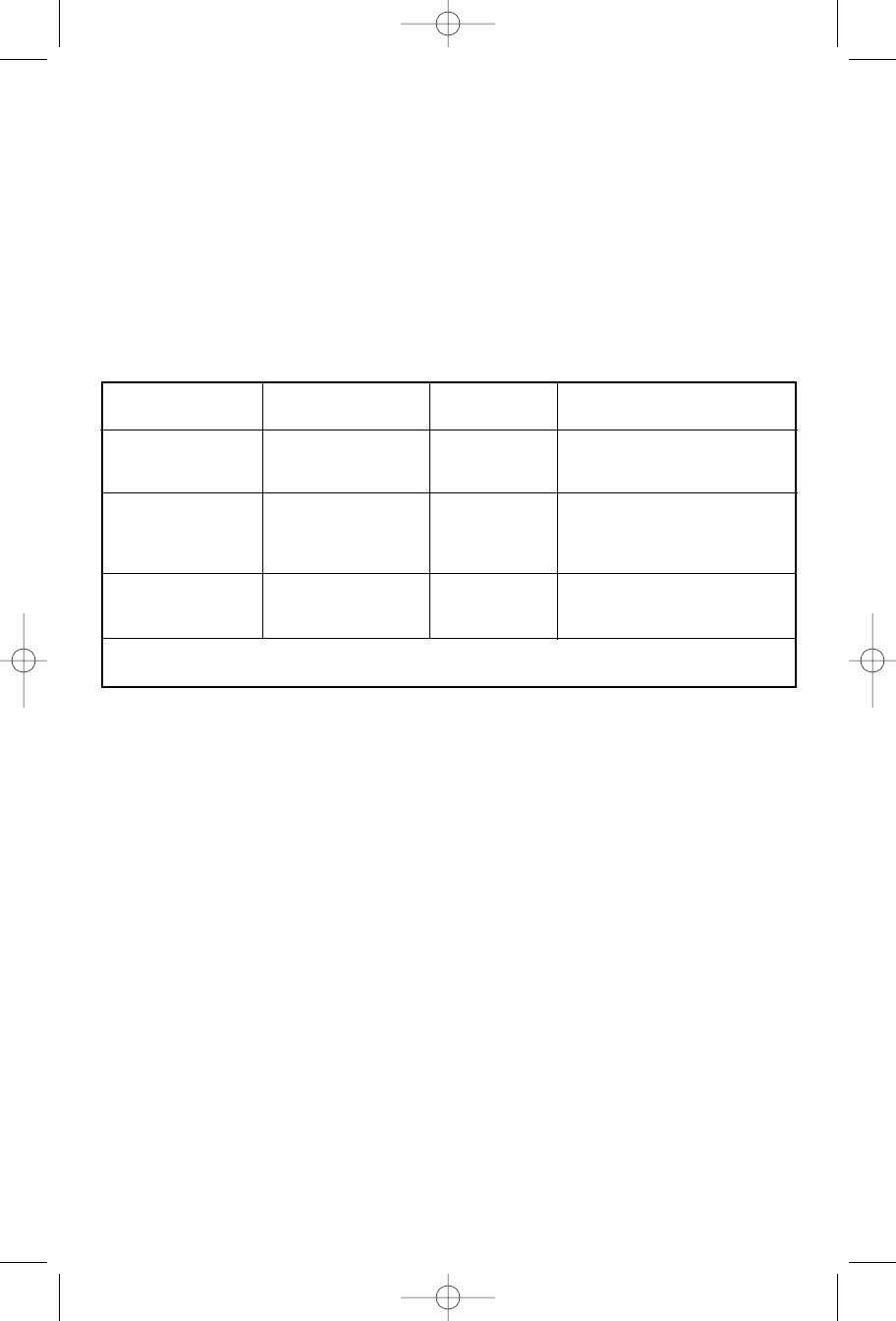
SANDING
OPERATION
PURPOSE ABRASIVE
TO USE
METHOD OF SANDING
ROUGH
PREPARATORY
FINISH
To level out uneven
surfaces.
Open Coat
Coarse Grit
Sanding diagonally to start
and finish up sanding
parallel with the grain.
To smooth the
rough sanding
preparatory to finish
sanding.
Open Coat
Medium Grit
Sanding parallel with the
wood grain.
The last sanding in
preparing the bare
wood for coating.
Open or
Closed Coat
Fine Grit
Sanding parallel with the
wood grain.
GUIDE FOR WOOD SANDING OPERATION
Remove all sanding dust thoroughly before coating. Use a soft brush or a vacuum cleaner
and hose to remove all dust from seams or crevices.
-11-
For fast removal, start with a coarse grit, open
coat belt. Change to closed coat belts, using
medium grits as the material shows through the
coating. When the covering is thin, use medium
grit to avoid scratching the material. Use short,
light strokes, moving the sander rapidly.
Excessive pressure or steady sanding in one
place will burn the coating and load the belt.
METAL FINISHING
For ferrous metals such as steel, stainless
steel, iron, etc., use coarse grit open coat belts
or coarse to fine grit closed coat belts,
depending on the finish desired. Non-ferrous
metals such as aluminum, solder, brass,
bronze, etc., can also be sanded. Beeswax or
tallow are recommended as lubricants for metal
sanding, polishing or satin finishing to minimize
belt loading and to lengthen belt life. To use,
simply rub the lubricant on the belt from time to
time. SAE No. 10 or 20 lubricating oil can also
be used to assure a smooth scratch free
surface. Just wipe the oil on the surface prior to
sanding.
SM 2610930928 6-05 6/1/05 9:10 AM Page 11


















